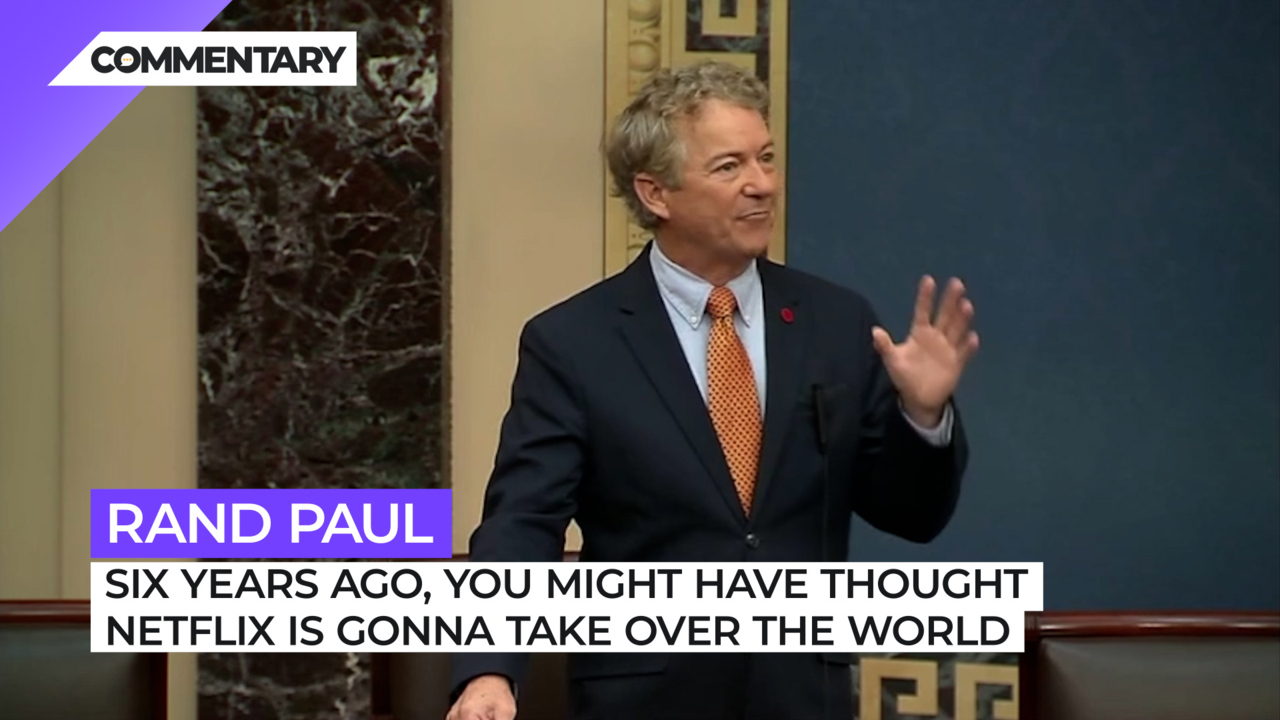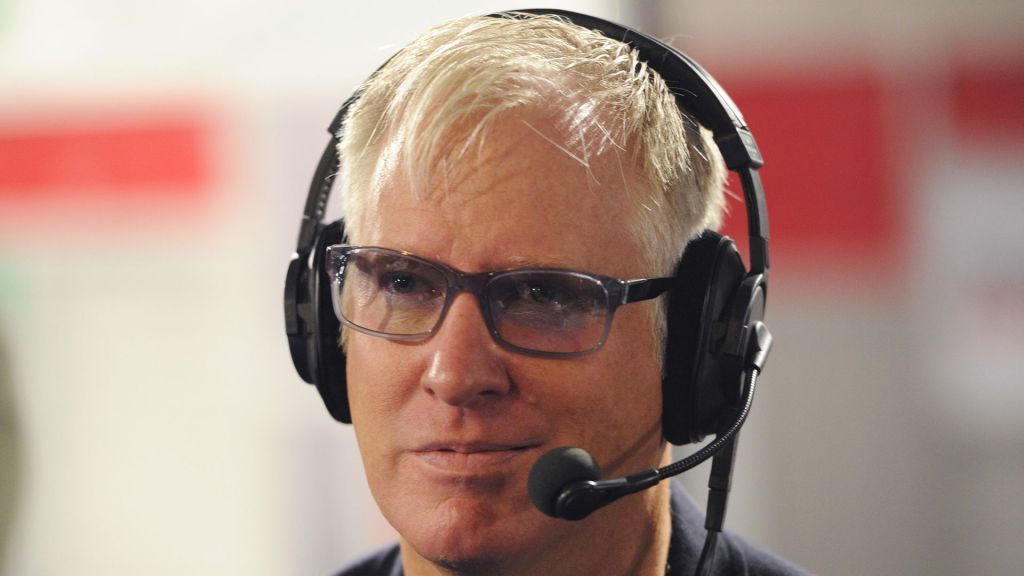
Commentary
-
Our commentary partners will help you reach your own conclusions on complex topics.
senator from Kentucky, reserving the right to object. The proponents of antitrust laws are famously zealous in their desire to eradicate the curse of bigness. To them big is always bad. Except of course, when it comes to the size and scope of government. The same people who supposedly fear the concentration of power in the marketplace celebrate the concentration of power in the state, a state that inserts itself into and nullifies private contracts, breaks up companies it deems too large and complex punishment on those who succeed in the competition for customers. In short, antitrust seeks to cap the amount of success any company or business can enjoy and the benefits reaped by customers. As the economist yelled, Rosen wrote, antitrust law seems to say that firms should compete, but should not win. firms should be efficient enough to survive, but should not share the fruits of greater efficiency with their customers. And that is the fatal defect of antitrust policy. Antitrust fails to accept the lessons of economic history, that voluntary exchange is a win win proposition, and that consumers are incredibly powerful in a free market system. A company that continues to reward its customers with superior products and innovations, will in turn be rewarded with greater market share with more and will do better than their competitors, and they will grow in size, size is not necessarily a bad thing. The size of a business reflects its ability to please its consumers. But no company can achieve a strong position in the market and rest on its laurels. Concern consumers are too demanding, and competitors will arise to steal customers away from any firm that ceases to treat his clients well. Unlike players in the marketplace, who must take note of consumer trends to survive, antitrust enforcers often fail to see what it is right in front of their face. Just take the issue of video services in 2005 when Netflix was already several years old and growing in popularity, the FTC Believe it or not visited itself in blocking a merger between Blockbuster and Hollywood Video. So this is the inside of government. Netflix is beginning to take off and the antitrust busters that trustbusters are breaking up VCR companies, DVD companies, they’re going after blockbuster. This is the incompetence of government and we should not encourage this. Blockbuster and Hollywood Video no longer exist. Even now Netflix is one they’re worried about. So Netflix was the competitor that put blockbuster out of business they wanted to get blockbuster to forbid them from merging. It makes no sense at all. No such fear exists today though, that Netflix will be a monopoly since they’re competing with Hulu, peacock Amazon Prime Video Disney plus HBO, Max Apple TV, Paramount plus and others. But five or six years ago, you might have thought Netflix is gonna take over the world. We got to break them up. No, if companies please their consumer, let them get bigger, bigger means they’re giving their customers something they want. We didn’t need government to break up Netflix. We didn’t need government to interfere to ensure competition and innovation. All we needed to do was let the marketplace work. But standing in the way of the benefits of the market are the antitrust zealots. The US Chamber of Commerce has pointed out that enacting this bill would stymie legitimate business transactions between sectors and industries, create needless new bureaucracy and spur unwarranted litigation. But the package is even more nefarious than that. It will take money out of the productive sector, the private sector and give it to bureaucrats in Washington. As Americans for tax reform correctly points out. This legislation would give the Biden administration hundreds of millions of dollars in new funds to pursue a progressive social agenda. They’re talking about critical race theory and all this craziness. injecting this into whether your company can merge or not. This is not something we need to give them more money to do. We need to give them less money. The package of bills here is just the first step to rien Big rate antitrust law, there is no lack of bills designed to empower government control over the marketplace. Take just one bill called the competition and antitrust law enforcement Reform Act, which would presume that any merger of a certain size violates the law and shifts the burden of proof to the merging parties. Government doesn’t have to prove that you merging and becoming bigger as bad, you have to prove that you’re merging somehow is a benefit. People merge they get bigger to provide lower costs and gain market share to gain profit for the consumers. That’s what capitalism is based on. That’s what Adam Smith really wrote about. According to Robert Bork, Jr. The antitrust bill would enact so many potential ways to prosecute abuse and torment companies, that government would in essence become the real board of directors in every major company would be ruled by the federal government. That is what is coming. That is what they’re proposing. This bill today is a small step in that direction. But what they have in the pipeline is more government control of business. The package today is a mere precursor to designating the Department of Justice and the FTC as the central planners of the American economy. This bill seeks to take the power out of the hands of the consumers and hand it to the antitrust bureaucrats. Therefore I object.
-
Sen. Rand Paul demands budget reform before raising debt ceiling
The U.S. hit its debt ceiling last week and began enacting “extraordinary measures” to avoid a default that could be disastrous for the U.S. economy. At a Jan. 25 Senate Republican press conference, Sens. Ted Cruz, R-Texas, Ron Johnson, R-Wis., Rand Paul, R-Ky., and others spoke to reporters with a message for President Biden. Straight…
-
Rand Paul derides spending bill with ‘Twas the Night Before Christmas
After days of negotiations, the Senate secured a deal on passage of the $1.7 trillion government spending bill, as lawmakers scrambled to avoid a shutdown before the Friday night deadline. Sen. Chuck Schumer, D-N.Y., said “We have an agreement. Now we will vote on all the amendments in order and then vote on final passage.…
-
Senator Paul addresses the Senate regarding his position on antitrust
Last week Sen. Rand Paul, R-Ky., blocked an attempt by the Senate to pass the Merger Filing Fee Modernization Act. The bill “would change the structure and the amount of filing fees levied by the Federal Trade Commission (FTC),” increasing fees on mergers over $1 billion. Sen. Paul believes “antitrust zealots” are getting in the…
Latest Stories
-
 DVIDS
DVIDS
Aid package to Ukraine ‘not aimed at achieving victory’
-
 AP Images
AP Images
Poll: Majority of Americans back mass deportation of undocumented immigrants
-
 Getty Images
Getty Images
Trump lawyers admit some actions alleged in indictment are private, not official
-
 Getty Images
Getty Images
EPA coal plant rule cuts emissions 90%, removes 17M homes worth of power
-
 AP Images
AP Images
As 2020 election lawsuits grow, Gateway Pundit files for Chapter 11 bankruptcy
Popular Opinions
-
In addition to the facts, we believe it’s vital to hear perspectives from all sides of the political spectrum.
Latest Opinions
In addition to the facts, we believe it’s vital to hear perspectives from all sides of the political spectrum. We hope these different voices will help you reach your own conclusions.
The opinions published in this section are solely those of the contributors and do not reflect the views of Straight Arrow News.

















Latest Commentary
We know it is important to hear from a diverse range of observers on the complex topics we face and believe our commentary partners will help you reach your own conclusions.
The commentaries published in this section are solely those of the contributors and do not reflect the views of Straight Arrow News.
Peter Zeihan
Geopolitical StrategistCan other nations replicate success of US shale revolution?
Peace between Israel and Iran, at least for now
Global internet in a precarious state, but that could be a positive
Dr. Frank Luntz
Pollster and Political Analyst‘Take the job seriously’: Why Americans are fed up with Congress
‘If we can shrink it, it will stop growing’: Americans talk debt, deficit
‘I don’t think they care’: Undecided voters explain their reasons
Pete Ricketts
U.S. Senator for Nebraska